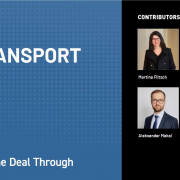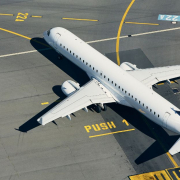Recht praktisch: Cool Place to Work
Mindesttemperaturen am Arbeitsplatz
Als Reaktion auf die drohende Energiekrise ruft unsere Regierung bereits seit einiger Zeit dazu auf, Energie zu sparen. Werden wir uns also daran gewöhnen müssen, mit Jacke und Schal an unseren Schreibtischen zu sitzen? Zumindest nach derzeitiger Rechtslage dürfte das wohl nicht der Fall sein.
Die Arbeitsstättenverordnung legt fest, dass die Raumtemperatur bei Tätigkeiten mit geringer körperlicher Belastung zwischen 19 und 25 Grad und bei normaler körperlicher Belastung zwischen 18 und 24 Grad zu betragen hat. In Deutschland wurden die bestehenden Mindesttemperaturen (wie etwa 20 Grad für körperlich leichte und überwiegend sitzende Tätigkeit) als Reaktion auf die derzeitige Situation bereits zeitlich begrenzt gesenkt (und zwar auf 19 Grad, womit sie der österreichischen Grenze entsprechen). Es bleibt abzuwarten, ob es noch zu weiteren Senkungen kommen wird bzw. ob in Österreich ebenfalls Unterschreitungen der bestehenden Mindesttemperaturen ermöglicht werden.
Von den steigenden Energiekosten sind freilich nicht nur Arbeitgeber, sondern auch Arbeitnehmer:innen betroffen. Dies insbesondere dann, wenn sie ihre Arbeit von zu Hause aus erbringen. Während Homeoffice zweifelsfrei einige Vorteile bietet und in den letzten Jahren pandemiebedingt einen regelrechten Höhenflug erlebt hat, führt das Arbeiten von zu Hause aus auch zu zusätzlichen (insbesondere Heiz-)Kosten für die Mitarbeiter:innen. Das Gesetz sieht zwar vor, dass Arbeitgeber digitale Arbeitsmittel bereitzustellen oder die angemessenen und erforderlichen Kosten hierfür zu tragen haben, gestiegene Heizkosten sind hiervon allerdings nicht umfasst. Dieser Umstand könnte dazu führen, dass einige Mitarbeiter:innen nun wieder vermehrt im Büro arbeiten möchten. Dies wird allerdings nicht immer so einfach möglich sein, da das Arbeiten von zu Hause aus auf einer Vereinbarung zu beruhen hat – von der somit nicht so einfach einseitig abgewichen werden kann.
Eine spannende Frage der nächsten Monate wird somit sein, ob bzw. unter welchen Umständen Arbeitnehmer:innen dazu berechtigt sein könnten, Homeofficevereinbarungen aufgrund von gestiegenen Energiekosten einseitig zu beenden.
Zur Ausgabe der KFZwirtschaft geht es hier.






